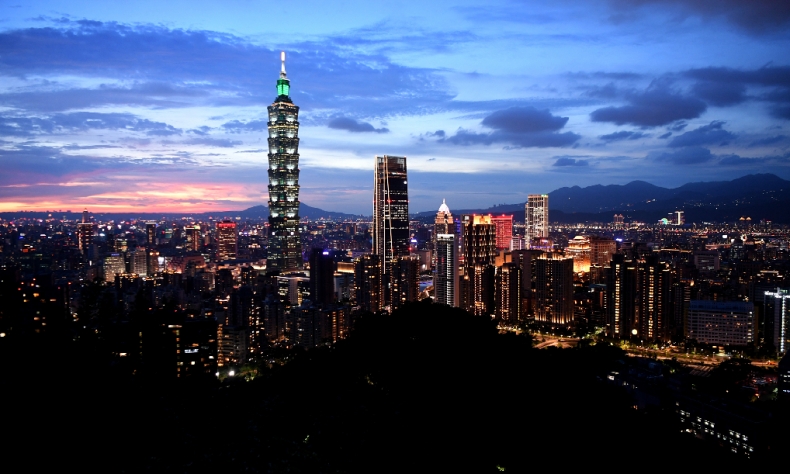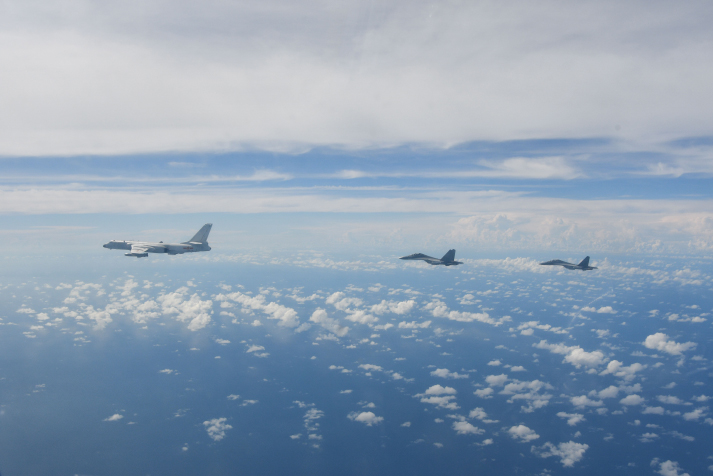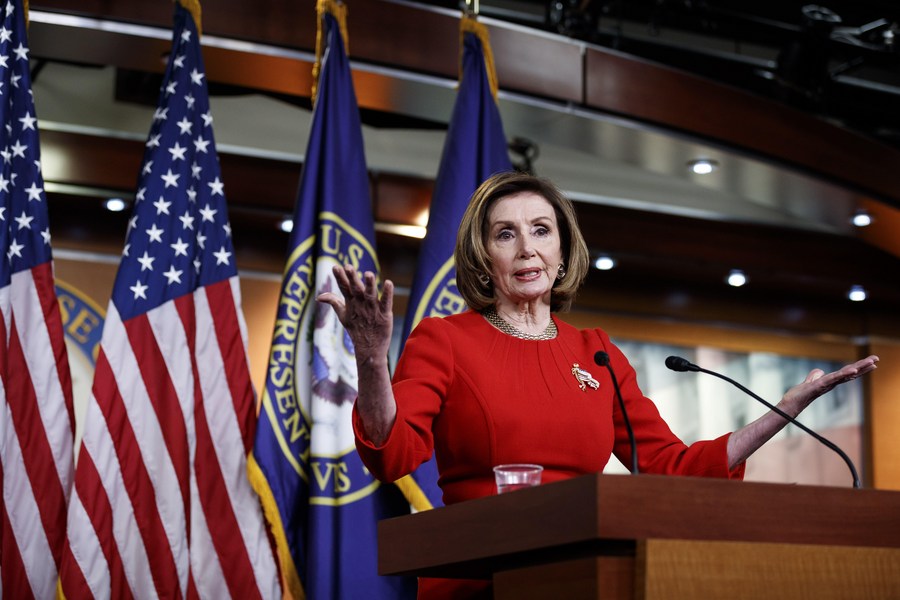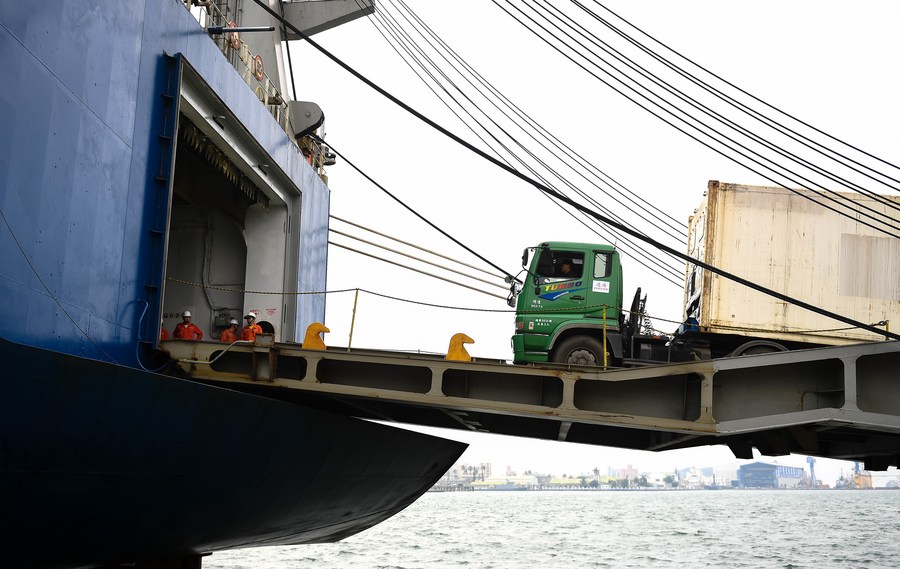“Taiwan Independence” Fantasy

This is a basic question of China’s security and sovereignty. It’s vital for the Chinese Government to insist on doing whatever is necessary to ensure ‘Taiwan independence’ is not achieved.
The possibility of “Taiwan independence” is a fantasy, a type of Hollywood myth that comes to the Chinese island region by way of geriatric dreams in Washington—dreams of a past that never actually happened, playing in the minds of late-capitalist Taiwanese youth with little understanding of real history, manipulated by self-serving, local politicians who mistakenly believe they have little to lose other than the platforms upon which they stand.
Let’s try to debunk this fantasy once and for all before real, irrevocable harm arrives. First, Taiwan is part of China. Some Westerners have wondered recently what the U.S. will do if the mainland “attacks and annexes” Taiwan. This question is misguided because as per the one-China principle, Taiwan is already part of China. Realistically speaking, nothing can or will change this fact.
Some analysts compare Taiwan with Cuba. On the one hand, they say, it’s reasonable that the Chinese Government is worried about sovereignty and security, given Taiwan’s proximity to the mainland. Similarly, the U.S. didn’t tolerate Soviet missiles in Cuba in the 1960s, with Cuba around 165 km from the Florida coast. Further, this comparison is apt in part due to U.S. shifts in policy declaring China a strategic adversary—that the U.S. wants to use Taiwan against the mainland. Taiwan is only 130 km from Fujian Province—if we don’t count the Kinmen Islands, which are under Taiwanese control, and only 10 km from Xiamen, a coastal city in Fujian.

On the other hand, this comparison breaks down because Cuba was never really part of the U.S. The U.S. did exert direct control over Cuba for a brief period of time as a ne’er-do-well playground for organized crime, high rollers and those seeking thrills otherwise illegal on the U.S. mainland, which almost recalls Portuguese control of Macao. But if we want a better comparison, then let’s imagine Rhode Island is the holdout of the last remnants of a bitter Civil War, armed to the teeth by an adversarial superpower, one that busies itself building several new military blocs with Rhode Island as the lynchpin, as the pin in the grenade. Now imagine foreign as well as local politicians in Rhode Island themselves threatening to pull that pin. Pure fantasy, no? Or sheer stupidity?
Some Westerners already regard Taiwan as being effectively independent, so they don’t understand why the Chinese Government makes a big deal about it. They think this is just about pride or some sort of old narrative in which the mainland has become stuck. What they don’t understand, is that if Taiwan actually became independent then it would significantly undermine the security of the mainland. Because Taiwan is not independent now, given that the United Nations, where China has a seat on the Security Council, formally recognizes the one-China principle, Taiwan can’t pursue international relations as sovereign countries do. Nevertheless, various countries still exploit Taiwan as a significant point of leverage against the mainland. If Taiwan was independent, then this danger would be much worse. So ultimately, this isn’t about face or pride. This is a basic question of China’s security and sovereignty. Therefore, it’s not only reasonable, it’s vital for the Chinese Government to insist on doing whatever is necessary to ensure “Taiwan independence” is not achieved.

Another Ukraine?
In justifying her recent visit to Taiwan, U.S. House Speaker Nancy Pelosi invoked the Russia-Ukraine conflict. On the one hand, this comparison has been made by many in the West—China is an aggressor that must be stopped. This is coming from the U.S., whose incursions in Islamic countries created utter chaos and destruction and resulted in more than 1 million dead over the last two decades, and whose own political negligence left 1 million Americans dead from COVID-19.
On the other hand, ironically so, Pelosi’s comparison is reasonable in part if we understand that the conflict in Ukraine is substantially the result of the U.S. meddling in Ukrainian politics while also pushing NATO onto Russia’s border. Doesn’t this seem like the same strategy the U.S. is pursuing in Taiwan? And if that’s true then shouldn’t the secessionist forces in Taiwan look at the consequences of that strategy in Ukraine, the ruined lives and cities, the continuous threats of new bombardments and no clear vision of future security, and see the nightmarish aspects of their “independence” dream?
Dependence is inescapable
But let’s imagine, for the sake of argument, that Taiwan could be nominally independent—would it actually be independent? We’d have to assume an independent Taiwan would depend on the U.S. for security, but this would always be tenuous—at best. The mainland is already capable of overwhelming force, which in turn would need to be counterbalanced by a U.S. in decline.
But more to the point, consider this: The U.S. didn’t win on the Korean Peninsula, didn’t win in Viet Nam, didn’t win in Iraq, didn’t win in Afghanistan, and currently isn’t winning its proxy war in Ukraine. So why would anyone assume it could win against China, against a stronger country with clear geographic and political advantages?
But Taiwan would also depend on the mainland in other ways. For example, already Taiwan is economically dependent, to a large degree, on the mainland—dependent on favorable trade policies. Taiwan has played a double-game for decades, exploiting favorable trade policies with both the U.S. and the mainland, but the mainland is its largest trading partner. Where would conflict leave Taiwan economically? Where would it leave Taiwan investments on the mainland? In short, one of the biggest reasons Taiwan has enjoyed so much economic development through the years is because the mainland has played nice.

This lesson ought to be clear enough with the recent tensions, including the very modest, if not minimal, raft of economic restrictions recently imposed in response to Pelosi’s visit to Taiwan. The mainland has suspended the sale of natural sand, a vital construction material, to Taiwan, as well as suspended the purchase of some farm produce from the island.
Similar challenges
Another reason the idea of “Taiwan independence” is a myth, some will argue, is due to shared civilizational and linguistic roots. When we compare the Taiwan youth with their peers in mainland cities such as Shanghai, Beijing, Chongqing and Shenzhen, to name a few, only two differences particularly stand out. First, the absolute resolve of young mainlanders that Taiwan is part of China and their will to fight for it. And second, half of the mainland cities I’ve noted above each have populations greater than Taiwan as a whole, and as Italian Renaissance political philosopher Niccolò Machiavelli rightfully reminds us again and again, size matters.
While young people on both sides of the Straits certainly have their own challenges and concerns, they also share similar desires for peace and development. They face similar challenges associated with geostrategic insecurity, climate change, and disease outbreaks.
Unfortunately, when it comes to history, when it comes to understanding the present day and its connection to the past, the young, especially those in Taiwan, are too often living what the late Qing Dynasty (1644-1911) author Shen Fu wistfully described as the “floating life.” This analogy is pertinent because the lifestyle Shen describes, already fantastical, would be lost entirely a few years after his death with the opening salvos of the Opium wars and the “century of humiliation,” the dark period beginning in 1840 that saw China lose control over large portions of its territory at the hands of invading powers.
This is not dissimilar in some respects with the present age. The hyperreality of late capitalism encourages ahistoricism, it encourages getting lost in the virtual realities of online gaming and fake news, and produces a type of nihilism masquerading as idealism.
But such fantasies do not hold up when we look at them critically, nor do they hold up under bombs and bullets. And, for that matter, neither does the myth of “Taiwan independence.”
The author is a professor of politics and international relations at East China Normal University and a senior research fellow with the Institute for the Development of Socialism with Chinese Characteristics at Southeast University.
 Facebook
Facebook
 Twitter
Twitter
 Linkedin
Linkedin
 Google +
Google +










